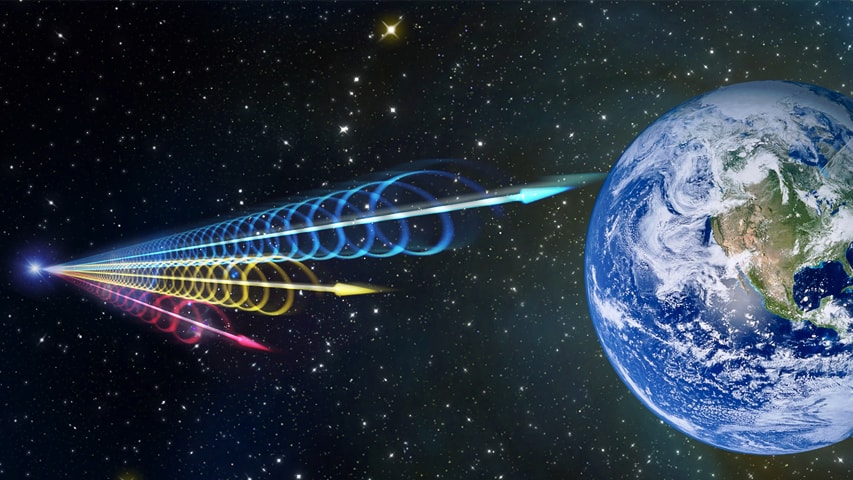An astronomer from NASA claims that aliens have probably already visited the Earth, but we simply don’t know about it, because there is too much hype around the UFO. And in general, we are looking for aliens in the Universe, not on the Earth.
NASA researcher Silvano Colombano, the biophysicist at New York University, published a paper on new assumptions regarding the search for extraterrestrial life as part of the SETI project.
The researcher stated that aliens had already visited the Earth, although, in reality, the scientist only admits such an opportunity. And the very essence of his work consists of thinking about the way to change our approach to the search for extraterrestrial civilizations.
 Artistic view of the alien ship
Artistic view of the alien ship
In fact, Colombano offers a new analysis of the famous Fermi paradox – the hypothesis which says that if there are alien civilizations in the Universe, then why do not we see traces of their activity?
But it approaches this issue quite radically.
Aliens can be anywhere, says Colombano, because the universe is infinite. In the Kepler project alone, scientists have discovered more than 3800 exoplanets.
In some cases, we are talking about planetary systems that are more than 11 billion years old. Moreover, the age of the solar system is only 4.5 billion years.
This means that some of the found exoplanets are 6 billion years older than our home planet.
Colombano claims that awareness of this fact can fundamentally change our attitude towards the search for extraterrestrial life. In fact, Colombano points to the fact that technology on Earth is developing at such a fast pace that we cannot predict what will happen to our civilization in the next couple of hundred years, not to mention at least 6 million years.
What could the Paleolithic people know about the wireless Internet? What were the ideas of the ancient Egyptians about the speed of light?
These are just simple examples that illustrate the technological gap between the inhabitants of the same planet, which are shared by millennia.
In other words, aliens can reach such an incredible path of technological progress which we may simply not have an idea of just because we are at a too primitive level of development.
Our Misconceptions About Aliens
Based on this logic, Colombano proposes to ruthlessly question four assumptions, which are most often taken as the basis for the search for extraterrestrial life.
1. Are interstellar flights impossible?
At the modern level of understanding of physics and the universe, we are absolutely sure that nothing can move faster than the speed of light.
 Do aliens know interstellar travel?
Do aliens know interstellar travel?
But it is foolish to assume that for billions of years of evolution, a hypothetical alien civilization cannot open a way to move faster in space or in time.
2. Radio – the main way of communication in the Universe
The SETI project involves the search for radio waves. And most of our hypotheses about the search for aliens are somehow related to radio signals. Their absence for many is evidence of the absence of extraterrestrial civilizations.
 Alien Radio Signals/Phys.org
Alien Radio Signals/Phys.org
But what if the aliens are so ahead of us in development that they use other ways of communication that are still unknown to us? Perhaps they learned how to transmit radio signals of the type that we take for ordinary “noise.”
3. Life must be carbon-based
Life on Earth is based on molecules in the formation of which carbon plays a key role. And in modern science, it’s somehow assumed by default that it is in this way that life should be formed on other planets.
However, somewhere in the universe, silicon can play the role of carbon. And somewhere, carbon forms of life evolve and turn into something else. In both cases, the parameters are changing, which should correspond to the potential habitats of these civilizations.
It’s not necessary to look for planets similar to the Earth, Colombano concludes. Moreover, creatures that are the fruit of the evolution of non-carbon life forms can differ significantly from us in shape, size, life expectancy, etc. This, in turn, may mean other adaptability to interstellar flights, stay in space, etc.
4. Nobody has flown to us yet
Colombano believes that it is impossible to say that aliens have not yet arrived on Earth. There are too many fake and obviously provocative statements, conspiracy theories, etc. about their arrival on Earth.
Nevertheless, he is confident that all the researchers should find the signals in these hassles.
So, how do we find aliens?
Colombano believes that having made such a shift in our consciousness, we can begin a more effective search for extraterrestrial life.
To do this, one should not be afraid of speculative physics, although it should still be based on theories and evidence, the scientist believes.
In particular, it is necessary to boldly consider theories about space-time and energy. One should also be bolder in forecasts regarding the creation of artificial intelligence and the possibilities of merging biological life forms with machines.
Colombano also offers to be more attentive to reports of various kinds of UFOs, and not to cast them blindly.
What is next?
The ideas presented in Colombano’s work pose new questions.
If aliens are extremely technologically advanced, does our search for them make sense at all?
Does it make sense to look for signals from an alien civilization, if it can be communications of a completely different level?
Perhaps, the main conclusion from Colombano’s work should be the desire to stop the tantrum around the search for aliens in general. It is worth focusing on the development of our own technologies and thinking more about the future of mankind.
Source: livenewspress24.com








